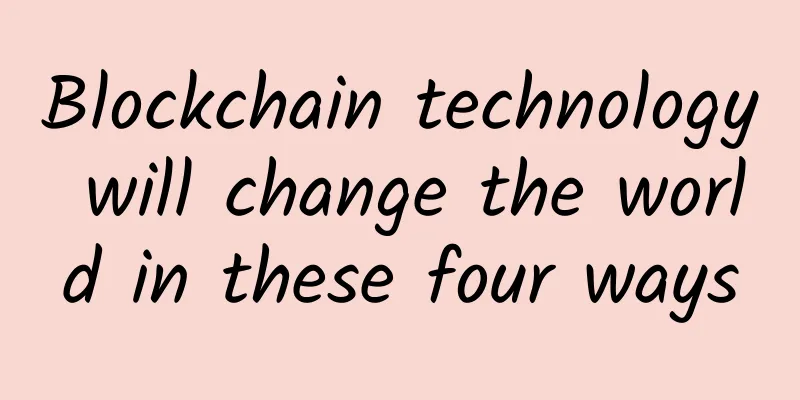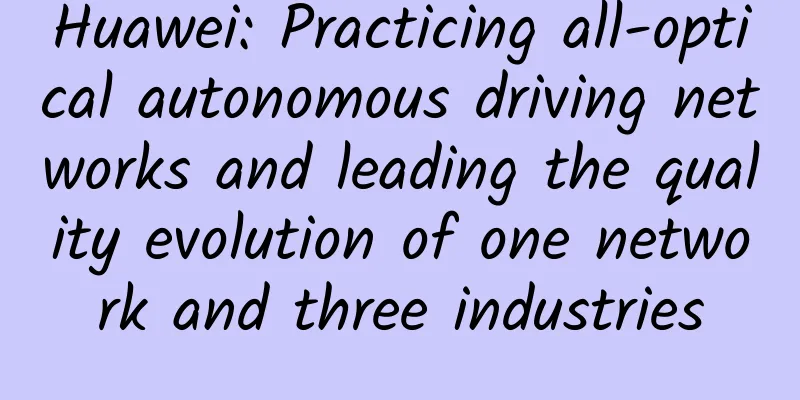What do you think of the "5G is useless theory"? Communications industry netizens have something to say

|
Since the beginning of this year, 5G has become the vanguard of the deployment of "new infrastructure" and has been mentioned many times at the State Council meetings, and its importance has continued to highlight. The Ministry of Industry and Information Technology recently issued the "Notice on Promoting the Accelerated Development of 5G", promoting the development of 5G from a policy perspective; the three major operators have successively announced their capital expenditure plans for 2020, with 5G becoming the top priority, with a total investment of 200 billion yuan. As 5G is being built in full swing, there is also a wave of "5G is useless" voices on the Internet: some people believe that 5G is mainly driven by policies and is actually not very useful or not very useful at this stage; some people also believe that 5G is far inferior to artificial intelligence. Representative views are as follows: Is 5G really "useless"? I recently received a sales call from China Unicom for 5G packages, which were reduced to only 59 yuan, but I still didn't find it attractive. The reason is that the faster speed of 5G does not bring a significant improvement in the experience of current mobile Internet applications; for many users, even if the price of 5G packages is greatly reduced, it is still expensive compared to 4G packages. The moment I hung up the phone, I seemed to feel that 5G was "useless". However, I am still confident in 5G. Just like 4G did not have many applications in the early stage of commercial use, with the large-scale deployment of 4G base stations, the mobile network capacity has rapidly improved. New applications such as Meituan Takeaway, Kuaishou Douyin, and live streaming have rapidly exploded after accumulating enough energy, making China's mobile Internet industry prosperous. Relevant reports show that as of August 2019, among the world's TOP50 listed Internet companies, the largest number of companies are from the United States and China, accounting for more than 80% in total. Miao Wei, Minister of Industry and Information Technology, pointed out that 80% of future 5G application scenarios will be in the industrial Internet. In other words, more value of 5G occurs in areas that consumers cannot perceive. So, at a time when 5G applications have not yet exerted their power and people have not yet perceived them, how do we view or even refute the "5G is useless theory"? Industry netizens at the Communication People's Home Forum had a heated discussion on this topic and shared many wonderful views (edited by the author without changing the original meaning). Viewpoint 1: The value of 5G+medical care cannot be measured (ID:Chrisenten) For most users in the short term, 5G can only provide speed. But it does not mean that 5G is useless. After all, the demand for large bandwidth and low latency in commercial applications is much higher than that in ordinary civilian applications. 5G is not yet a mature commercial technology and still has a long way to go. At present, there are too few 5G applications that are close to civilian use, but this does not mean that it has no space and future. Let's take a simple example: pre-hospital emergency treatment requires a large bandwidth for patient diagnosis and treatment images. The pre-hospital diagnosis and treatment images of patients are transmitted to the emergency hospital on the way to the hospital for doctors to formulate diagnosis and treatment plans, which are directly implemented upon admission. Even if the transmission time is reduced by one minute, it may create a little more space to save this life. How to measure this value? Viewpoint 2: 5G is a higher goal for the country (ID: Wind, Thunder and Rain) For individuals, there is no difference between reading news and reading it in 1 second and reading it in 0.2 seconds. However, there is a difference between watching a movie and reading it in 1 minute and reading it in 10 minutes. 3G is not popular abroad, and many places still use 2G. 4G is only available in big cities, which is different from China's national conditions. China's national policy is national, and China Mobile, China Telecom, and China Unicom have to operate even if they don't make money; abroad, it is a corporate operation, and the demand is not large. If there is no profit, there will be no update. If you have made a product, you will know that when the first generation of products has no competitors in the market and the market is not saturated, the second generation of products will not be released. 5G is the country's higher goal and it is building new infrastructure. If the layout is completed, many scenes in science fiction films will no longer be science fiction, and industries such as driverless cars will develop rapidly. Viewpoint 3: 5G is a question of whether the car comes first or the road comes first (ID:keendream) Whether 5G is useful or not depends on the application. 4G was deployed proactively by operators in line with business needs; 5G, from the current perspective, is mainly guided by national strategies, and the market demand has not yet fully emerged. In fact, operators and customers are not very active. This is the debate of "which came first, the car or the road". From the current perspective, it feels like 5G is being used for the sake of 5G. 5G is mainly for industry applications, not individual users. Those views of "5G is useless" are aimed at personal applications, while 5G's high speed and low latency are mainly for industrial Internet of Things, highly sensitive data and other industry applications. If the 5G service object is described only as individual users, it will feel that it is not very useful. Viewpoint 4: 5G construction should also take operators into consideration (ID:kaola0839) From the perspective of operators, the large-scale construction of 5G networks is now in progress. The procurement and operation costs of 5G are much higher than those of 4G. What applications can really bring revenue growth to operators? Are netizens who support 5G willing to increase their monthly communication costs by several hundred yuan to support 5G? Operators also have to assess profits. If killer applications such as 5G are built now, what will happen if such applications are not available until 5 or even 10 years later? The large-scale construction of 5G networks will lead to a deterioration in operators’ financial indicators and further reduce the income of operators’ employees. We should not act rashly. Viewpoint 5: Time is the best proof (ID:rothman) 5G is similar to the current real estate market. Some people think it is useless, just like some second-tier cities have built a large number of houses that are vacant, and will collapse sooner or later, but the collapse theory has been around for 20 years, and it has never collapsed. But you really can't figure out who will support such high housing prices. Others think that the state needs real estate for investment, and users also need houses to live in, but the housing prices are high. Now most people have houses to live in, so can they wait and buy them when they are cheaper? Whether 5G is valuable or not, time will tell. We will know in two years. |
<<: 5G message white paper is about to be released, and traditional SMS will usher in a major change
Recommend
Illustrated Network: Uncovering the principle behind TCP's four waves, combined with the example of a boyfriend and girlfriend breaking up
In this section, Rui Ge will continue to show you...
5G network construction: NSA or SA first?
Different from the era from 3G to 4G, the evoluti...
The first batch of 5G mobile phones are coming. What are the "killer" applications?
A relevant person in charge of the Ministry of In...
Let’s talk about whether 5G really consumes more power?
[[374504]] This article is reprinted from the WeC...
CommScope has been leading manufacturing innovation for 20 years and will continue to be online in the future
In early December 2017, CommScope held a 20th ann...
Huawei Telnet and Stelnet login methods that make people dizzy
I am Zhao Jiexu, a lecturer at 51CTO Academy. On ...
Experts give reasons for slow 4G network speed: too many users and bloated apps
Do you feel that the current 4G network speed is ...
Network streaming media protocol - RTSP protocol
RTSP (Real-Time Stream Protocol) is a text-based ...
Actual combat case: The hospital egress router is cut over. Once the intranet device is connected, the router interface cannot be accessed? Amazing!
Background XX Company is an engineering company s...
2021 China Internet Haha List 3: Top Ten Keywords
With change comes new opportunities. The Internet...
Traffic "roaming" fees will be cancelled on July 1st. The three major operators are working overtime to promote it
The timetable for canceling data roaming charges ...
Maxthon Hosting: 20% off for CN2 GIA of Los Angeles Triple Network, KVM architecture 2G memory package starting from 54 yuan per month
Maxthon Hosting has launched a new Los Angeles Tr...
RAKsmart server flash sale starts from $30/month, cluster server starts from $142/month, US/Japan/Korea/Hong Kong data centers
In addition to the flash sales on VPS and cloud s...
ABI Research: LoRa will lead non-cellular LPWA growth in the next five years
LoRa will lead the growth of non-cellular low-pow...
[Black Friday] TMThosting: 30% off monthly payment for Seattle high-security VPS, 10% off for dedicated servers, supports Alipay
TMThosting has released this year's Black Fri...






![[LeaTech Summit Review] Red Hat Global Vice President Cao Hengkang: The secret of digital transformation lies in people "cooperation"](/upload/images/67eb9c52f1eab.webp)
![[6.18] Moack: $35.64/month-2xE5-2630L/32GB/1TB/10M bandwidth/South Korea server](/upload/images/67cac333327b6.webp)

